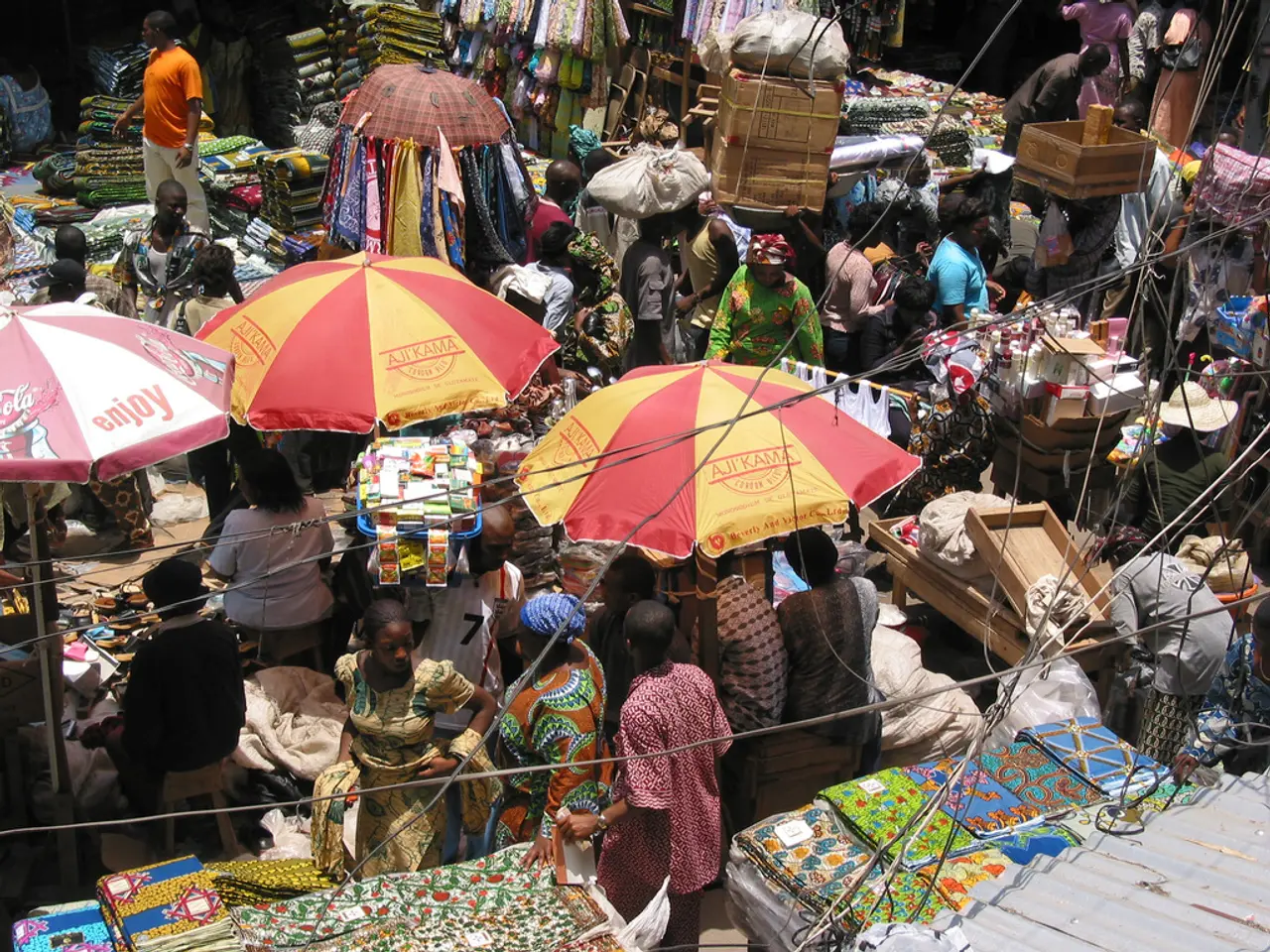The anticipated US tax on remittances could have a detrimental impact on impoverished nations.
================================================================================================
The 1% remittance tax included in the recently signed "One Big Beautiful Bill" will primarily affect cash remittance transfers from individuals in the U.S. to recipients abroad, starting January 1, 2026. This tax targets cash-based transfers, money orders, cashier's checks, and similar instruments, but exempts transfers made through formal banking channels, credit/debit cards issued by U.S. banks, and online transfer services like Remitly or WISE.
The potential impact on developing countries heavily reliant on remittances—which often constitute a significant part of household income and national economies—could be substantial. The tax reduces the net amount received by families, forcing senders to allocate more funds to cover this tax, which may result in lower remittances overall or increased financial strain on migrant workers.
Specific effects include:
- Household-level impact: Many families in countries such as India depend on remittances from lower-income migrants. Even a small levy like 1% could dent their dollar inflows, reduce household spending power, and have downstream effects on poverty and consumption in these economies.
- Encouragement of informal transfer channels: Because the tax applies only to certain cash and informal transfer methods, it may incentivize senders to resort to informal or unregulated channels to avoid the tax, risking reduced transparency and increased illegal financial flows.
- Negative impact on countries heavily dependent on U.S. remittances: Some developing countries rely significantly on remittances for economic stability. The tax could reduce funds available for daily needs, increasing economic vulnerability in recipient communities.
- Potential disproportionate effect on undocumented or low-income migrants: Since the tax focuses on cash remittances, it disproportionately affects migrants who may lack access to formal banking and remittance services, often the poorest and most vulnerable populations.
In Haiti, more than half the population is already short on food, and the remittances tax is expected to shave off 0.31% of its GNI. In Liberia, the remittances are more than triple the size of the foreign aid it receives, and the tax is expected to exacerbate poverty by shaving hundreds of millions of dollars off annual remittances received by poor countries.
For many families in poor countries, remittances serve as a lifeline for food, education, and medicine. Remittances have a wider reach than cash transfers and help many more poor households. However, the tax could inadvertently impose financial burdens on developing countries and households that rely heavily on these remittance inflows. The economic consequences could include reduced household income, increased poverty, and growth of informal money-transfer practices.
References:
- Thomson Reuters Foundation. (n.d.). The 1% remittance tax in the "One Big Beautiful Bill": Implications for developing countries. Retrieved from https://www.trust.org/item/20251216161143-i6vfs/
- The New York Times. (2025, December 16). The 1% Remittance Tax in the "One Big Beautiful Bill" Could Hurt Poor Countries. Retrieved from https://www.nytimes.com/2025/12/16/world/americas/remittance-tax-trump-bill.html
- The Washington Post. (2025, December 17). The remittance tax in the "One Big Beautiful Bill" could harm developing countries. Retrieved from https://www.washingtonpost.com/world/the_americas/the-remittance-tax-in-the-one-big-beautiful-bill-could-harm-developing-countries/2025/12/17/e2c80210-a353-11ed-9b61-e3b5785262cd_story.html
- The Guardian. (2025, December 18). The remittance tax in the "One Big Beautiful Bill" could harm developing countries. Retrieved from https://www.theguardian.com/world/2025/dec/18/the-remittance-tax-in-the-one-big-beautiful-bill-could-harm-developing-countries
Note: This article was published with permission from Thomson Reuters Foundation. The story covers humanitarian news, climate change, resilience, women's rights, trafficking, and property rights.
- The new 1% remittance tax could potentially exacerbate climate change consequences, as developing countries heavily reliant on remittances might experience reduced financial resources, which are often used for adaptation and mitigation efforts that align with the Sustainable Development Goals (SDGs).
- In the context of policy-and-legislation and finance, some experts suggest that the 1% remittance tax could inadvertently hamper the progress towards establishing a more resilient and sustainable global economy, given its potential to negatively impact industries, such as remittance services, and the overall business landscape.
- The tax's subsequent effects on poverty and consumption could have far-reaching implications for both politics and general news, as households, industries, and nations struggle to cope with the decreased remittance inflows.
- While the 1% remittance tax might be a topic of debate within the industry and finance sectors, its overall impact on developing countries remains a concern, not only for economists and policymakers but also for the global community, as the well-being of millions of people dependent on remittances is at stake.




